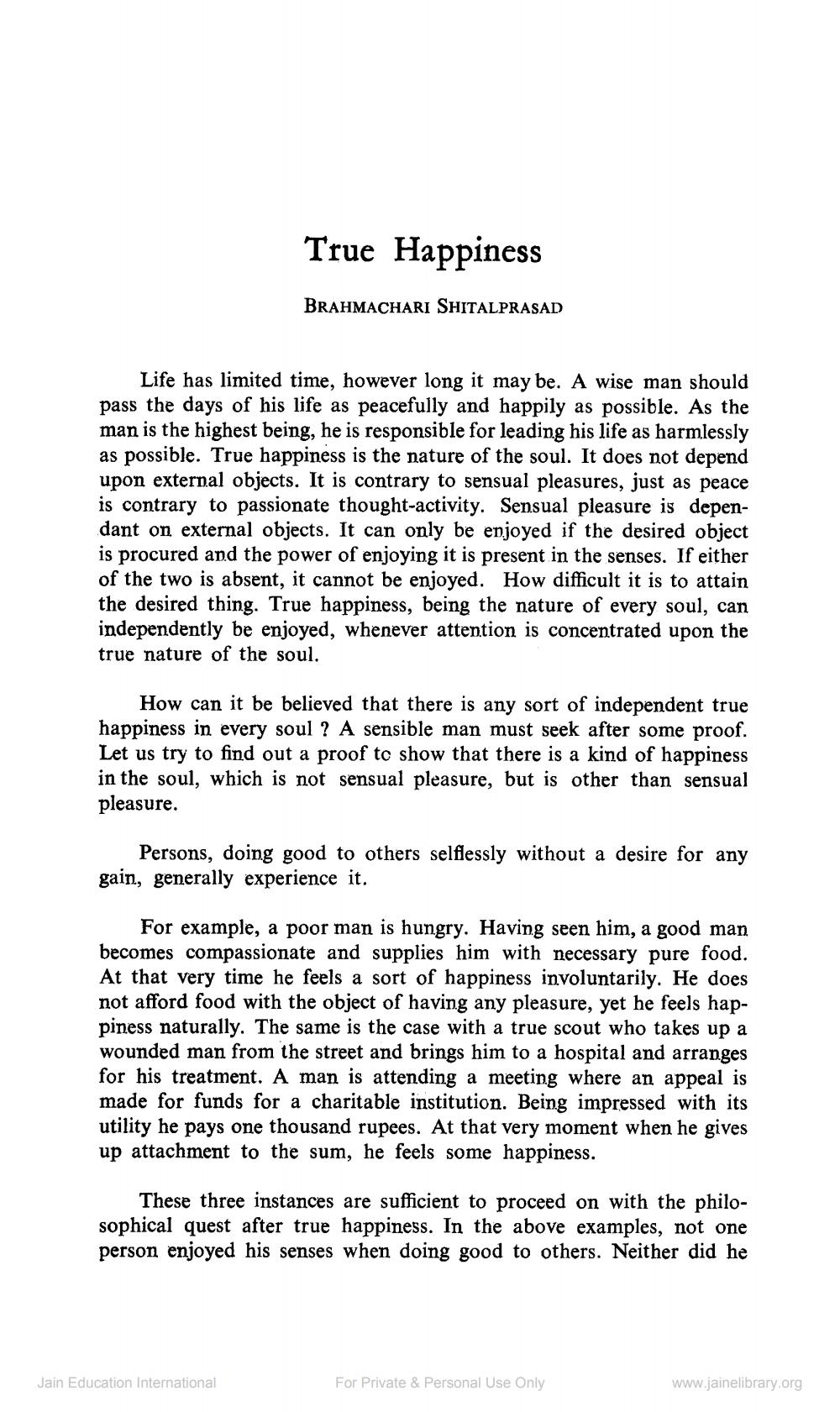________________
True Happiness
BRAHMACHARI SHITALPRASAD
Life has limited time, however long it may be. A wise man should pass the days of his life as peacefully and happily as possible. As the man is the highest being, he is responsible for leading his life as harmlessly as possible. True happiness is the nature of the soul. It does not depend upon external objects. It is contrary to sensual pleasures, just as peace is contrary to passionate thought-activity. Sensual pleasure is dependant on external objects. It can only be enjoyed if the desired object is procured and the power of enjoying it is present in the senses. If either of the two is absent, it cannot be enjoyed. How difficult it is to attain the desired thing. True happiness, being the nature of every soul, can independently be enjoyed, whenever attention is concentrated upon the true nature of the soul.
How can it be believed that there is any sort of independent true happiness in every soul? A sensible man must seek after some proof. Let us try to find out a proof to show that there is a kind of happiness in the soul, which is not sensual pleasure, but is other than sensual pleasure.
Persons, doing good to others selflessly without a desire for any gain, generally experience it.
For example, a poor man is hungry. Having seen him, a good man becomes compassionate and supplies him with necessary pure food. At that very time he feels a sort of happiness involuntarily. He does not afford food with the object of having any pleasure, yet he feels happiness naturally. The same is the case with a true scout who takes up a wounded man from the street and brings him to a hospital and arranges for his treatment. A man is attending a meeting where an appeal is made for funds for a charitable institution. Being impressed with its utility he pays one thousand rupees. At that very moment when he gives up attachment to the sum, he feels some happiness.
Jain Education International
These three instances are sufficient to proceed on with the philosophical quest after true happiness. In the above examples, not one person enjoyed his senses when doing good to others. Neither did he
For Private & Personal Use Only
www.jainelibrary.org




